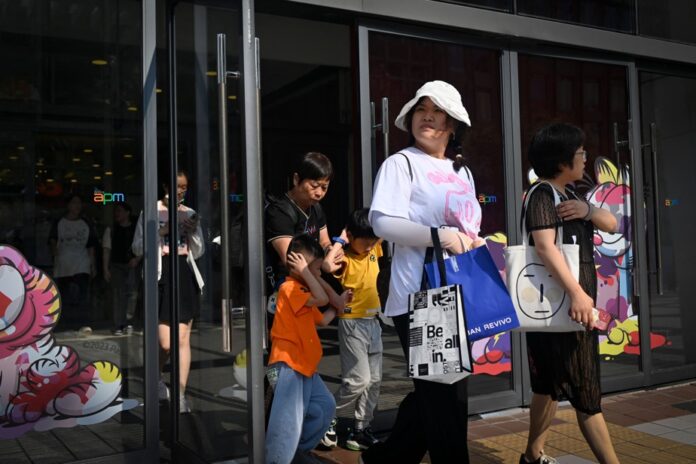(Beijing) China released a series of more disappointing economic indicators for July on Tuesday, increasing pressure for a sweeping stimulus package in the world’s second-largest economy to spur growth.
Retail sales, the main indicator of household consumption, rose only 2.5% year on year last month, according to official figures from the National Bureau of Statistics (BNS).
Analysts polled by the Bloomberg agency expected an acceleration (3.6%), after an increase of 3.1% in June of this index closely followed by the markets.
A sign of sluggish consumption in China, household loans fell to their lowest level since 2009 last month, figures showed on Friday.
To support activity, the Chinese central bank on Tuesday lowered a benchmark rate for medium-term loans and injected 400 billion yuan into the economy.
The interest rate for one-year loans from the central bank to financial institutions (MLF) thus increases to 2.50% against 2.65% previously.
This measure makes it possible to reduce the financing costs of commercial banks to encourage them to grant more credit on more favorable terms.
Activity is particularly penalized by the setbacks of the real estate sector and its astronomical over-indebtedness, sluggish consumer confidence and the global economic slowdown which is weighing on demand for Chinese goods and therefore exports.
Logically, industrial production also slowed in July (3.7% over one year), against 4.4% a month earlier.
Analysts had anticipated a more moderate decline (4%).
Last month, the rate for the entire working population rose slightly from June to 5.3%, according to official figures which this month do not mention the rate for 16-24 year olds.
Youth unemployment was in June at a record high (21.3%).
In China, the unemployment rate is calculated for urban areas only and therefore provides only a partial picture of the situation.
For its part, investment in fixed assets slowed to 3.4% year on year in the first seven months of the year.
This is its weakest growth rate since 2020.
This indicator reflects spending on real estate, infrastructure, equipment and machinery, sectors on which the government has relied in the past to stimulate activity.















